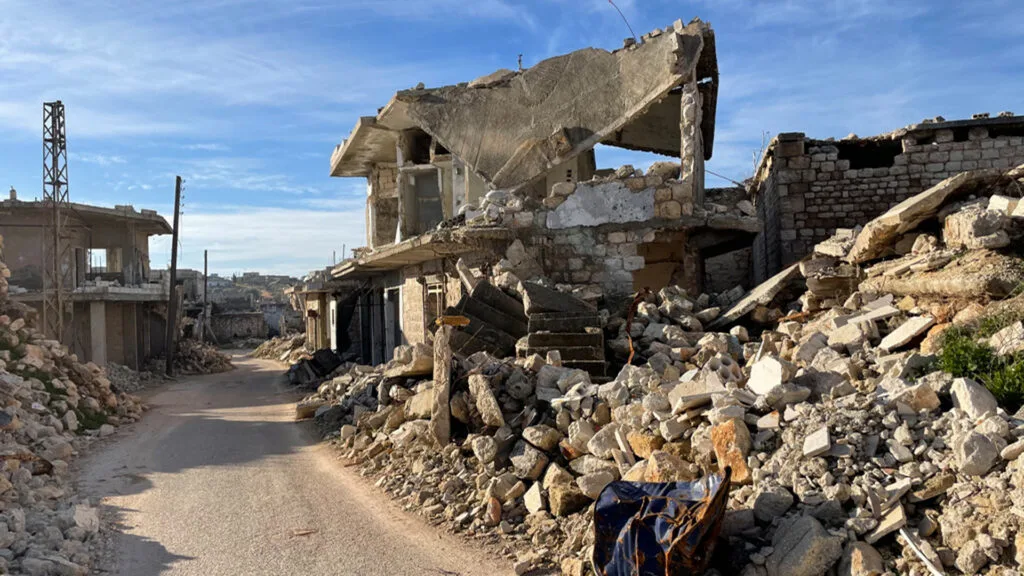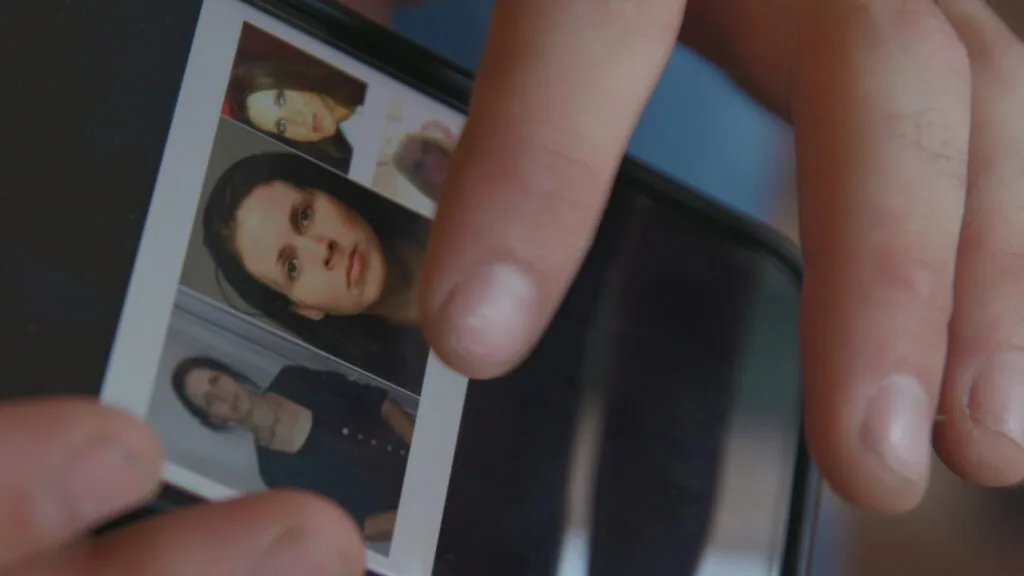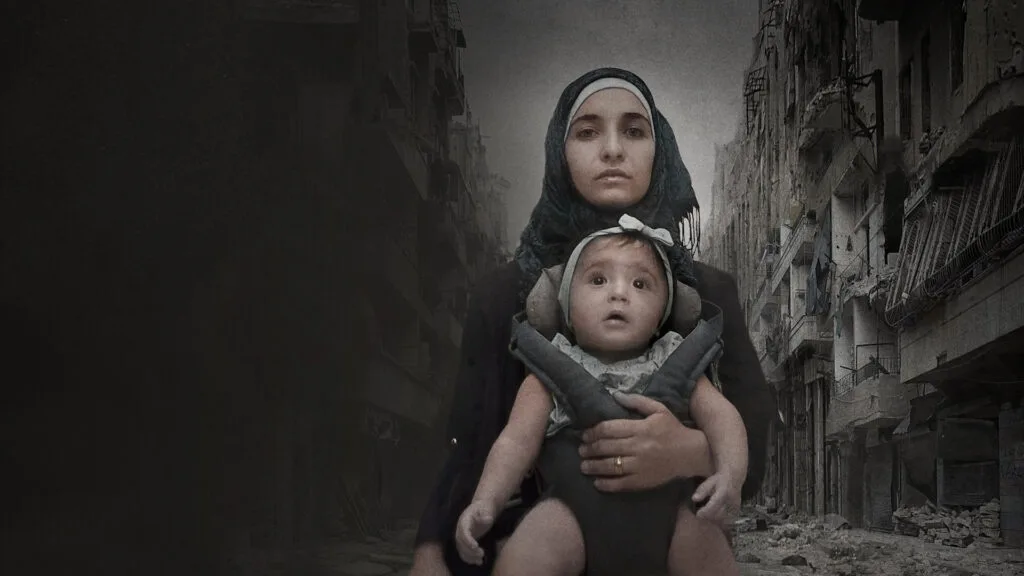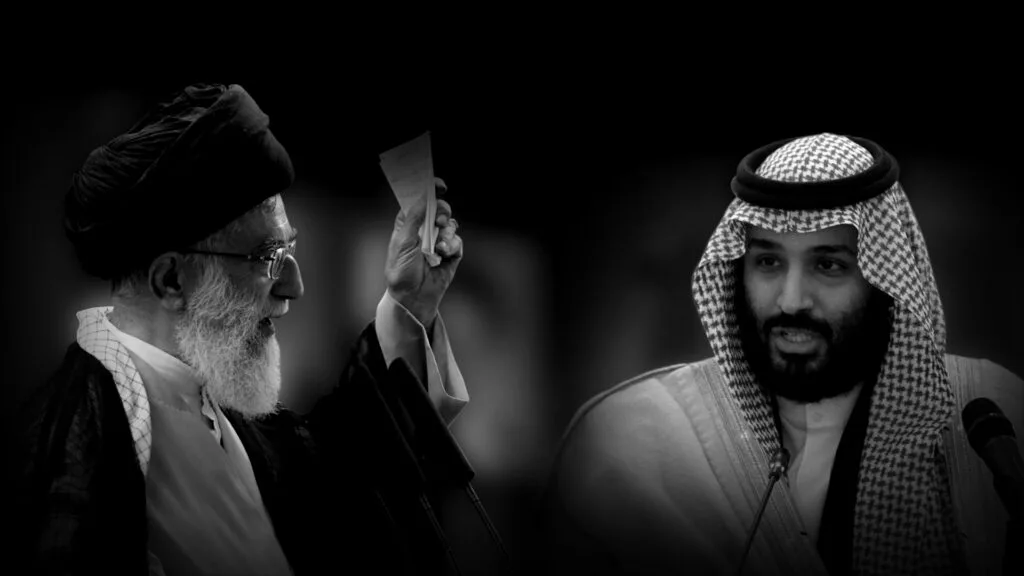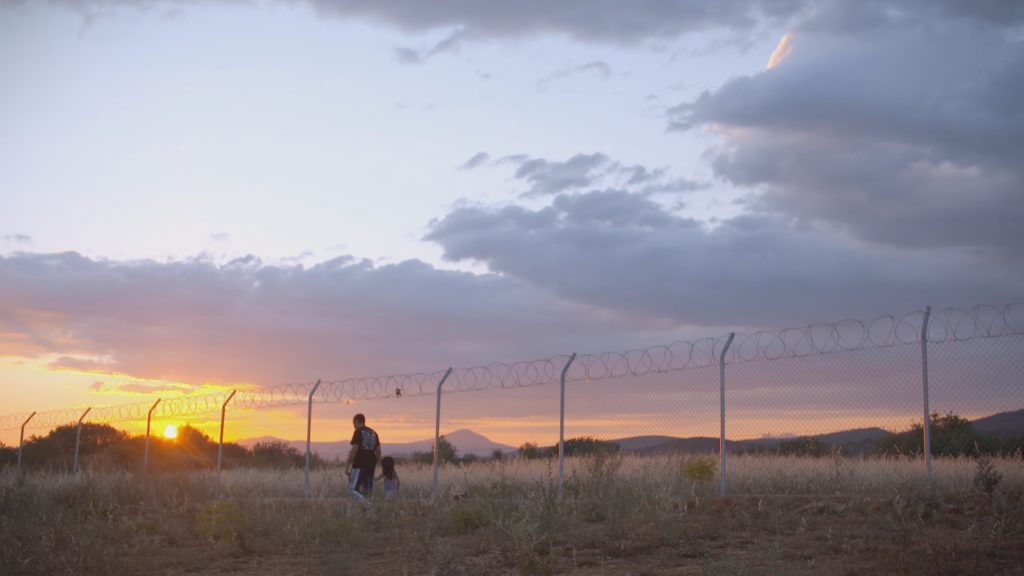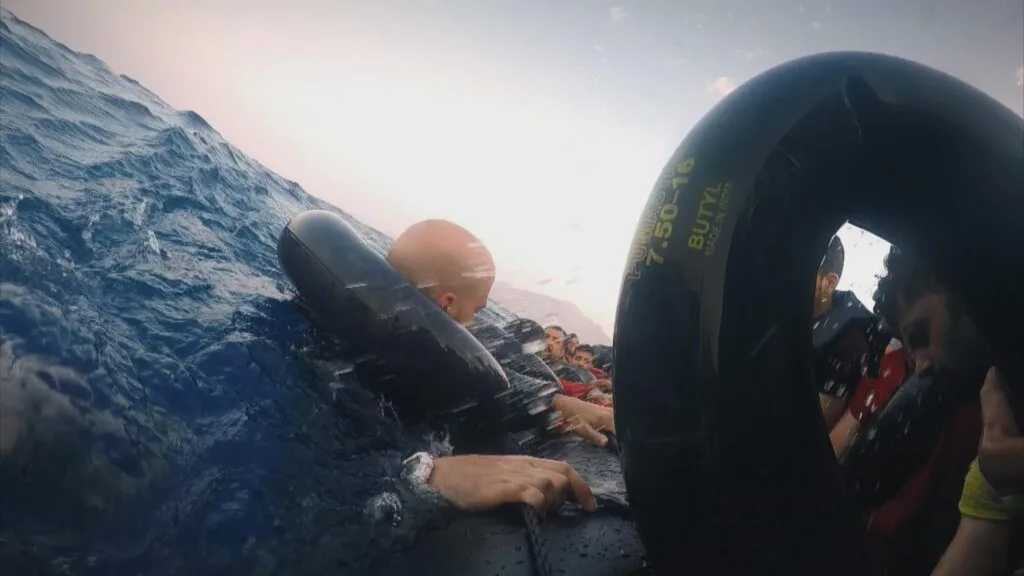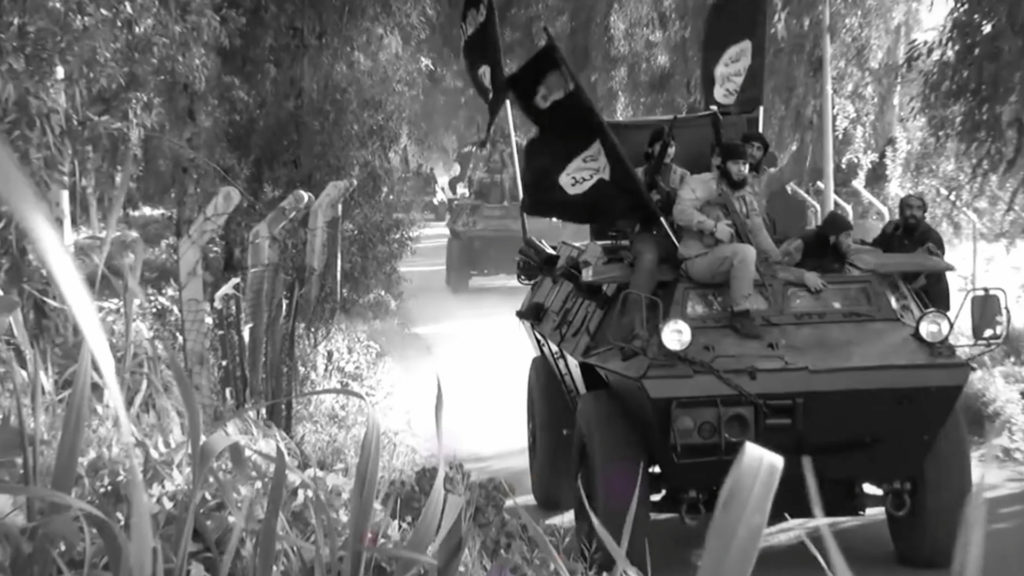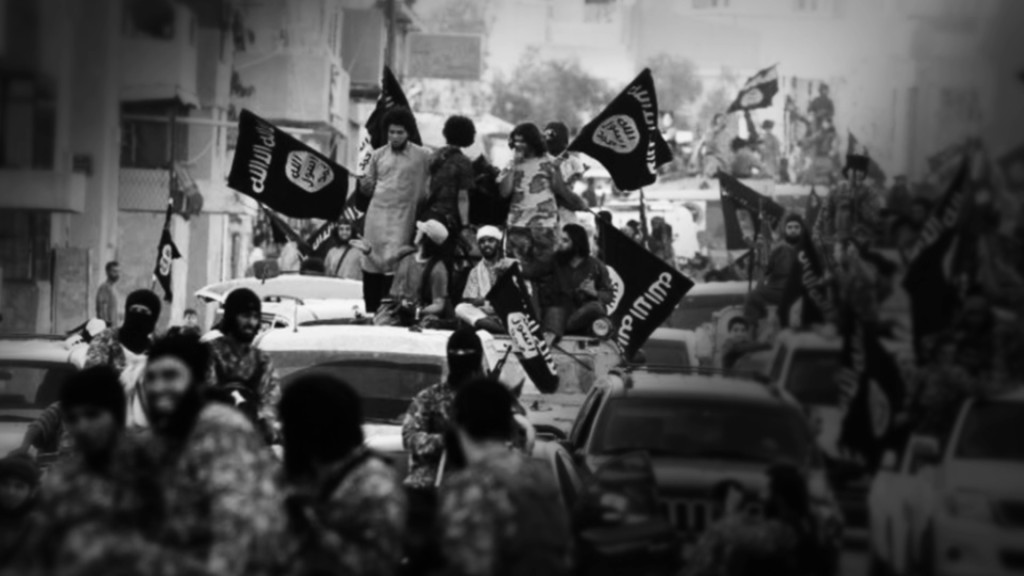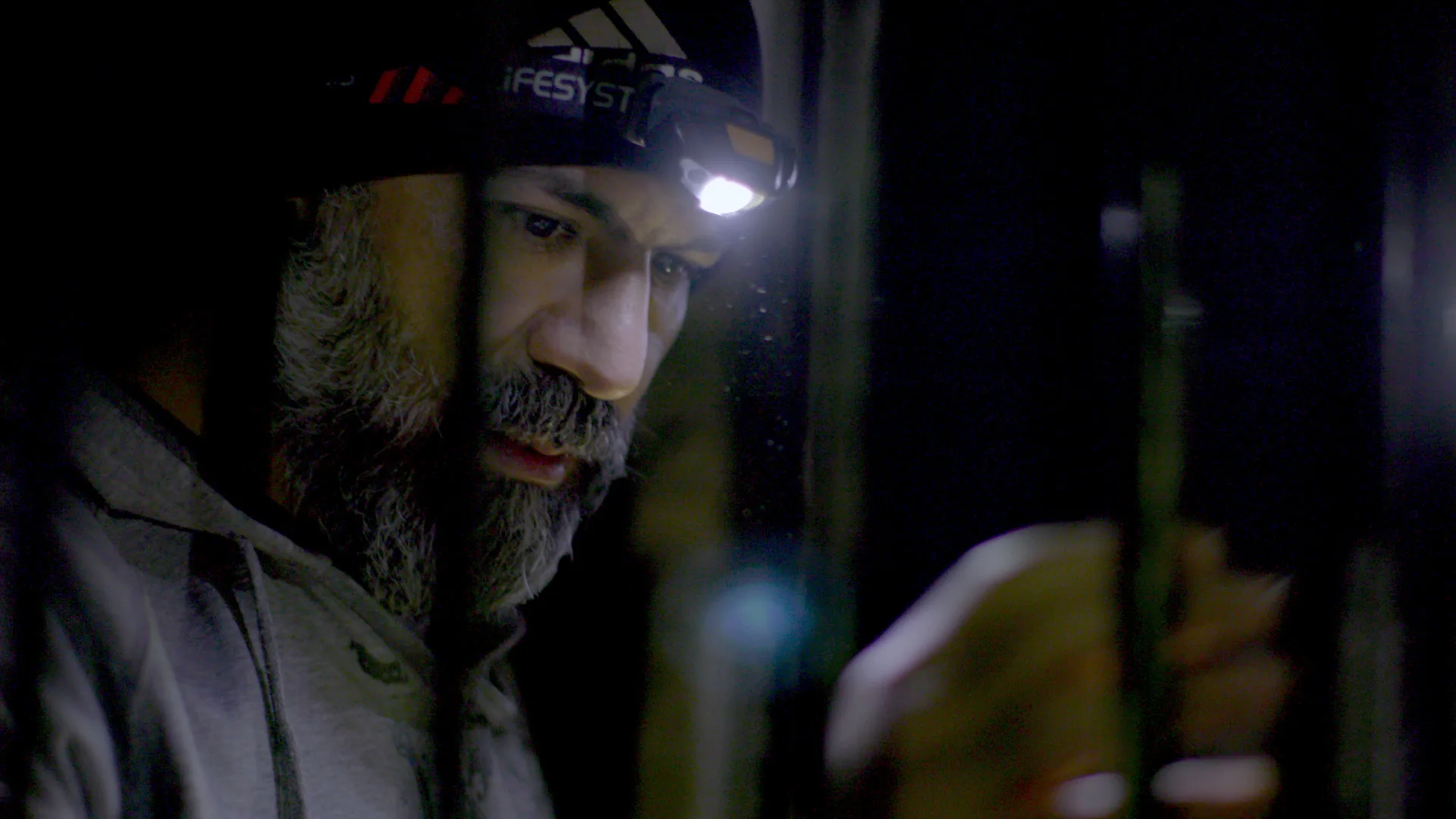‘I’d Scream Louder’: After Assad’s Fall, Brothers Return to Saydnaya Prison Where They Were Tortured
June 10, 2025
Share
Shadi Haroun says that in the past, he wasn’t a smoker.
Chuckling wryly, a cigarette in his hand, the Syrian man tells FRONTLINE, “I got through university without ever smoking a cigarette, because life was so sweet back then.”
That was before Shadi and his brother, Hadi, were imprisoned and tortured for nearly a decade by Bashar al-Assad’s regime after taking to the streets in 2011 to protest Assad’s rule.
The brothers, who were among more than a million people detained by the regime during the Syrian war, share their stories in Syria’s Detainee Files, a feature-length documentary premiering on PBS and online June 10. For part of their detention, Shadi and Hadi were held at the regime’s notorious Saydnaya military prison — sometimes called the “human slaughterhouse.” Syria’s Detainee Files sheds new light on atrocities under Assad at Saydnaya and elsewhere through the accounts of people who survived them — as well as through the stunning testimony of former regime insiders and officers who carried them out.
“It is true that I tortured. It is true,” a former guard at Saydnaya prison says in the documentary. “But today I am exposing the prisons to the outside world.”
In the above video drawn from Syria’s Detainee Files, Shadi and his brother, Hadi, return to Saydnaya days after Assad’s fall, walk into the cell where they were held, and describe what they experienced.
“Being arrested with someone who means a lot to you is very tiring,” Hadi says. “I could not stand hearing my brother being tortured. If someone cried out while being beaten, the beating would get worse.”
So Hadi took action.
“Sometimes Shadi had to scream, so I’d scream louder than him — that way they’d take me instead,” he says, adding, “I always tried to be the one to take the beating, rather than him.”
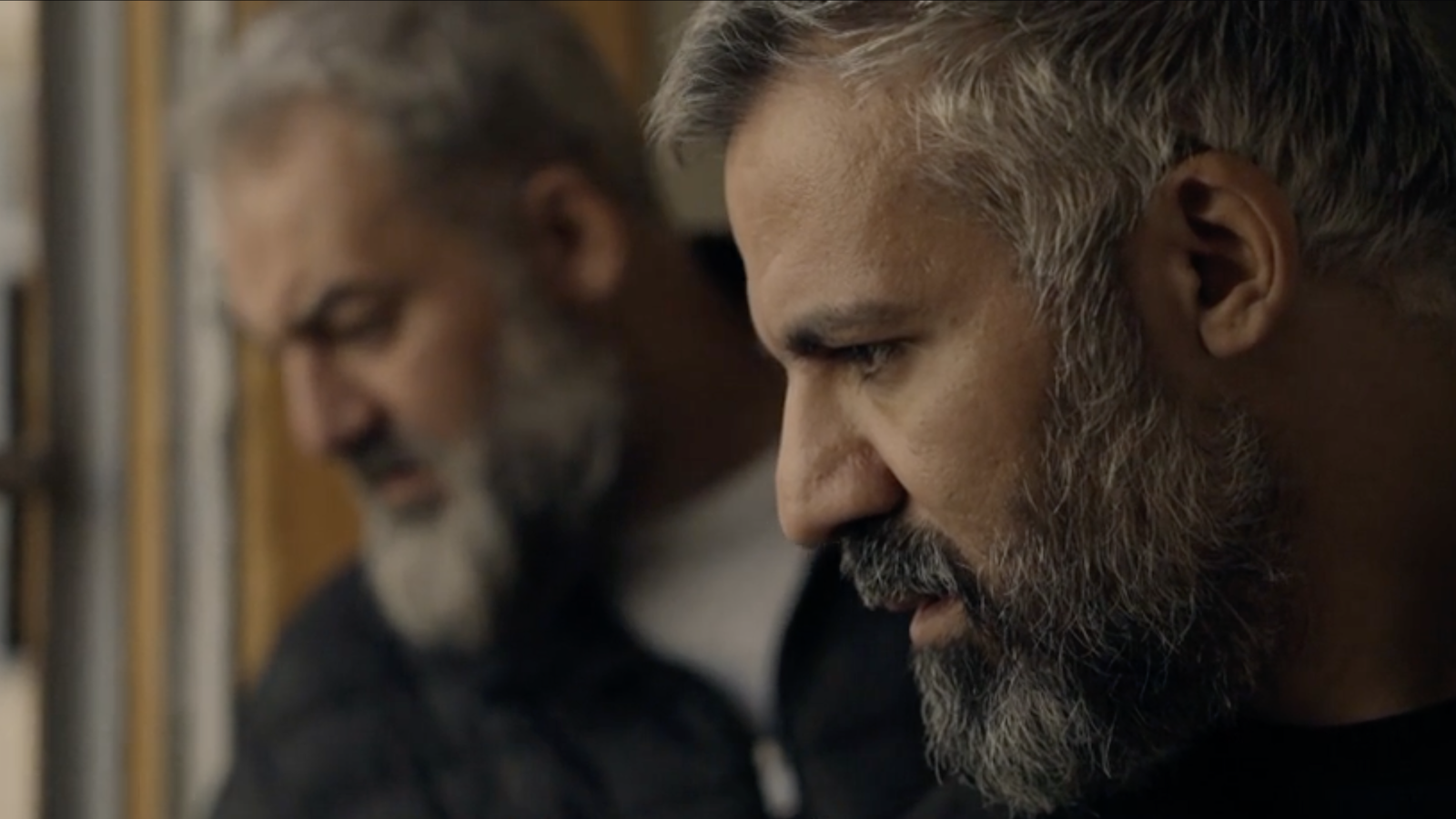
The former guard at Saydnaya tells FRONTLINE that his superiors instructed him and other soldiers to torture and even execute detainees.
“When they’d call me to go and torture them, the prisoners would go back to their cells bloody and exhausted,” the former guard, who ultimately defected and fled Syria, says in the video. “I felt that I had authority. I felt like I was the president of this prison. Of course, there were other soldiers like me.”
Inmates were quickly and secretly convicted in military field courts, with no lawyers or right to appeal.
The trials often ended with death sentences — signed off on behalf of President Assad. It was all part of a system of detention, torture and killing designed to crush opposition.
“In every method they used, you’d feel that they have this mindset to make a human feel like an insect, like you are nothing,” Shadi says. “It was so easy for a 20-year-old guard, doing his military service, to stand at the door of the wing and say, ‘I can make you live, die, eat, sleep, etc. As far as you’re concerned, I am God.’”
Six months after Assad’s fall, more than 100,000 people detained by his regime during the Syrian war are still unaccounted for. Syria’s Detainee Files documents the search for answers and accountability. An award-winning film team that includes filmmakers Sara Obeidat, Sasha Joelle Achilli, Amel Guettatfi and Saad Al Nassife tracked down 40 former regime insiders and officers of various ranks across a dozen countries, pressing them to reveal details of how the regime’s system for quashing dissent operated, and what happened to the people caught within it.
Many of the former insiders spoke to FRONTLINE before the fall of Assad, and feared reprisals from both sides. Some have given testimony to human rights groups or courts investigating war crimes. FRONTLINE agreed to conceal their identities and change their names, given the value of their firsthand accounts about abuses carried out by the Assad regime.
“As the security officers, we had the right to kill as we pleased, and we wouldn’t be held accountable,” says a former colonel who was a high-ranking Syrian air force intelligence officer when the uprising began.
Assad has been granted asylum in Russia, and a French court is seeking his arrest for complicity in crimes against humanity.
In the meantime, Shadi and Hadi are working with a human rights organization to gather evidence of crimes committed by the Assad regime — and to find answers for the families of the many detainees who are still missing.
A Syrian army nurse who worked in a hospital morgue until the regime’s final days says, “Tens of thousands of detainees were buried, and no one knows anything about them.”
For the full story, watch Syria’s Detainee Files. The entire documentary will be available to stream starting June 10, 2025, at 7/6c at pbs.org/frontline and in the PBS App, and it will premiere on PBS stations (check local listings) and on FRONTLINE’s YouTube channel that night at 10/9c. The documentary will also be available on the PBS Documentaries Prime Video Channel. Syria’s Detainee Files is a BBC Current Affairs production for GBH/FRONTLINE and BBC. The producers are Amel Guettatfi, Saad Al Nassife and Sara Obeidat. The directors are Sasha Joelle Achilli and Sara Obeidat. The senior producer is Dan Edge. The editor-in-chief and executive producer of FRONTLINE is Raney Aronson-Rath.

Related Documentaries
Latest Documentaries
Related Stories
Related Stories
Explore
Policies
Teacher Center
Funding for FRONTLINE is provided through the support of PBS viewers and by the Corporation for Public Broadcasting, with major support from Ford Foundation. Additional funding is provided the Abrams Foundation, Park Foundation, John D. and Catherine T. MacArthur Foundation, Heising-Simons Foundation, and the FRONTLINE Trust, with major support from Jon and Jo Ann Hagler on behalf of the Jon L. Hagler Foundation, and additional support from Koo and Patricia Yuen. FRONTLINE is a registered trademark of WGBH Educational Foundation. Web Site Copyright ©1995-2025 WGBH Educational Foundation. PBS is a 501(c)(3) not-for-profit organization.


